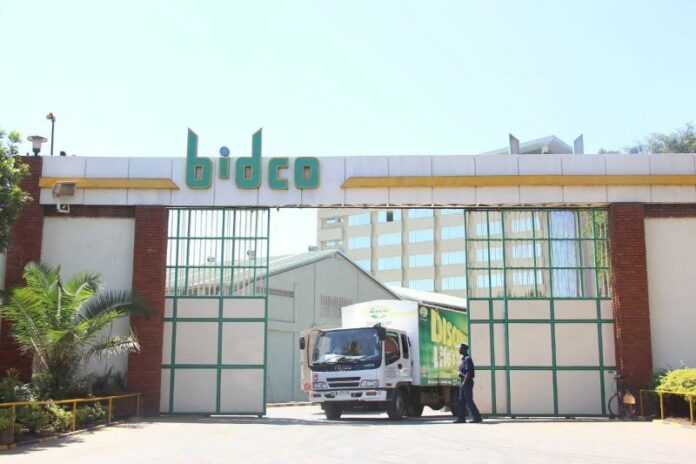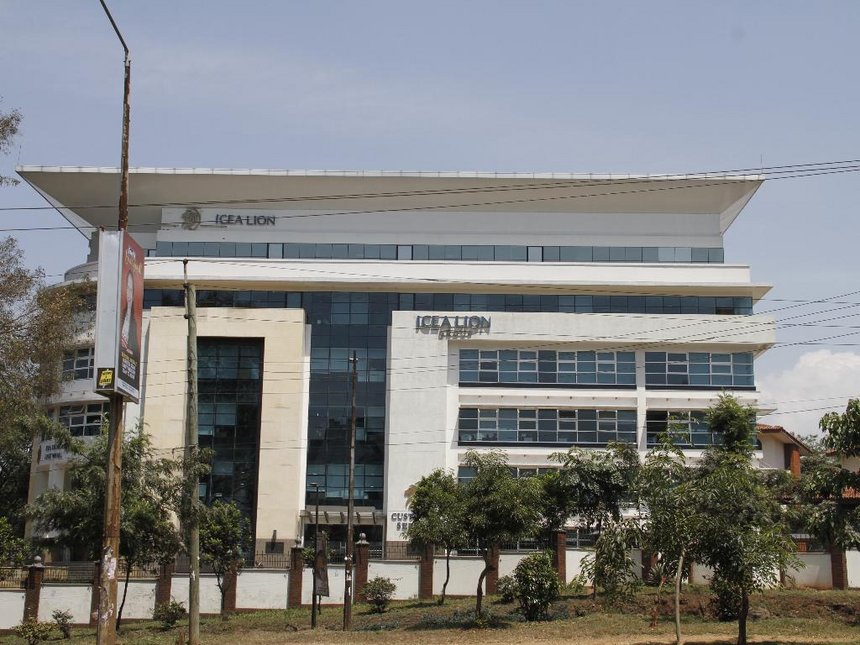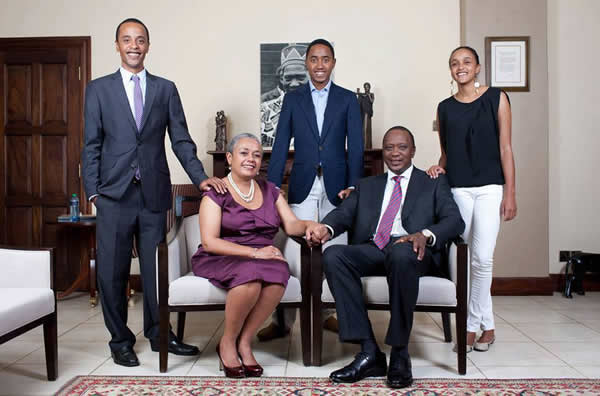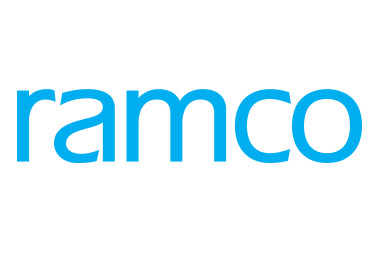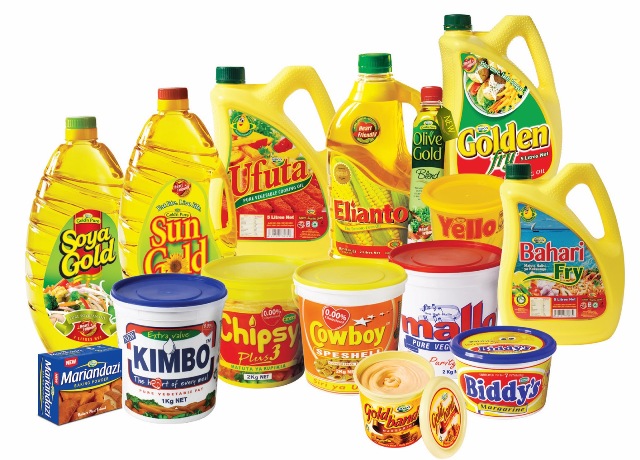The firm, best known for producing plastic products, was incorporated in August 1977 as Kenpoly Manufacturers Ltd. Plastic products from the firm are sold not only in Kenya but also in at least 10 other countries in the region.
PwC’s 2016 Kenya Private Company Survey says Kenpoly also owns successful farming businesses in Naivasha and Nakuru that employ 1,800 people.
It also runs Blowplast Limited that produces packaging items for consumer goods like oils and pharmaceuticals.
Under Kenpoly is also Thermopak Kenya Limited that specialises in producing packaging for use in the horticulture, hospitality and dairy industries.
Kenpoly is also the founder of Fina Bank. But in 2012, it sold a 70 per cent stake in the lender to Guaranty Trust (GT) Bank.
Among the people on the Kenpoly empire driving seat is Hanish Chandaria (above), one of the three children of the founder — all of whom have taken up roles in the business.
Speaking to PwC for their 2016 survey, Hanish said he was sitting in the boards of all the four family businesses, including the bank.
Before taking a hands-on leadership role in the family business in 2009, Hanish had worked in the investment banking sector in Europe and America.
“If you’re a family member working in a professionally-managed family business, other professionals will look at you differently,” Hanish told PwC.
One philosophy that family businesses should adopt, he said, is to separate family ties with business ties.
“Once you step into the office, your number one interest has to be the business, not family,” he said.
1. KENAFRIC INDUSTRIES
Kenafric engages in the manufacture of confectionery, footwear and stationery products.
Many people may know the firm from its tongue-appeasing confectioneries but that is not where it started.
Kenafric’s first stab at business, as revealed by the 2016 PwC survey, was distributing fast-moving goods like sugar, sanitary paper and pharmaceuticals.
The family later bought a furniture business but later sold it, and Mr Bharat Shah who was the company’s managing director for 18 years, told PwC that they realised the furniture business had a limited turnover.
By then, Kenafric had diversified to polyvinyl chloride (PVC) products like shoes, slippers and gumboots. They were behind the “Dancing Queen” shoe style that was a hit in Kenya.
Later, the Kenafric think-tank decided to cash on the fact that a majority of the Kenyan population were children. That is how they entered the confectioneries business.
In the formative years of Kenafric, the leader was Bharat’s father Velji Shah. He worked with his brothers.
Bharat told PwC that his decision to quit the managing director’s seat after 18 years to serve as vice chairman was to hand the mantle to the next generation. His son, nephew and niece are involved in the business.
2. ICEA LION
Former Central Bank of Kenya governor Philip Ndegwa, who died in 1996, started a firm four decades ago that would grow into one of the biggest family-owned businesses in Kenya. He founded First Chartered Securities in 1974, eight years before he became the CBK boss.
The firm would later acquire the Insurance Company of East Africa (ICEA), which is now ICEA Lion Group and has a presence in Kenya, Uganda and Tanzania.
Mr Ndegwa’s First Chartered Securities also holds a 25 per cent stake in NIC Bank, and his sons James (above) and Andrew have a 6.5 per cent stake each.
A 2016 circular to NIC Bank’s shareholders revealed that James owned 42 million shares, which were worth Sh1.1 billion in September 2016.
Business Daily reported that James is the chairman of First Chartered while Andrew is the executive director.
3. THE KENYATTA FAMILY
In its 2014 list of Africa’s top 10 family firms, Forbes revealed that Muhoho Kenyatta, the youngest son of Kenya’s first President Jomo Kenyatta, is on the steering wheel of the Kenyatta family business empire.
The family has invested in land, hospitality, dairy, media and banking industries. Some of the companies are Brookside Dairies and MediaMax Network Limited.
“President Jomo Kenyatta laid the foundation for the family business back in the 1960s and 1970s when he acquired hundreds of thousands of acres of land across the country when the British colonial government and the World Bank funded a settlement transfer fund scheme that enabled government officials and wealthy Kenyans to acquire land from the British at very low prices,” reported Forbes.
4. RAMCO GROUP
It was founded in the 1940s by Rambhai Patel. It started as a hardware store in downtown Nairobi but is today a giant organisation that has interests in print, hardware, manufacturing, stationery and consultancy.
PwC’s 2016 Kenya Private Company Survey revealed that the group has 35 companies with a total turnover of $320 million (Sh33 billion) and 3,800 employees in five countries.
While compiling the report, PwC spoke with Hasit Patel (above), a grandson of the founder. Hasit said he was playing three roles in the group: IT leader for the group, board director and managing director of Ramco’s Platinum Packaging department.
The report said Ramco had four family members at the board who are also shareholders.
“Ramco’s largest non-family shareholder also has a seat on the board as do two long-standing employees,” the report said.
5. BIDCO
Bidco is best known for manufacturing cooking oils, and its ownership as of March 2015 was all about Bhimji Shah and his sons Vimal and Tarun. Each of the three had a 33.3 per cent stake, according to disclosures made by the International Finance Corporation. Vimal is the managing director and also the public face of the company.
Its product portfolio has more than 30 brands as it produces oils and fats, baking products, soaps, cosmetics and animal feeds.
“Bidco has a 49 per cent share of the edible oils market in Kenya,” reported Forbes in its 2014 list of Africa’s top 10 leading family businesses.
Bidco evolved from a garment factory that Bhimji founded in Nyeri in 1970 then grew to a massive cooking oil firm.
In 1985, Bhinji shifted to soap manufacturing. In 1998, it acquired the Elianto brand from Unga Limited and went ahead to make it a household name. In 2001, Bidco acquired a soap manufacturing plant in Dar es Salaam and a year later, it acquired a number of brands from Unilever. It continued expanding its products to include liquid soaps and the Germonil toilet cleaner.



